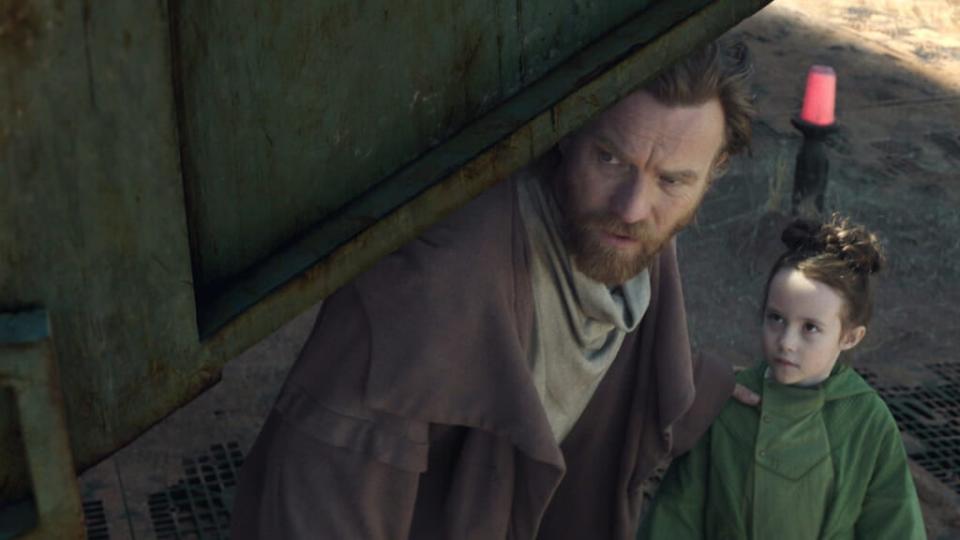5 Burning Emmy Questions That’ll Take a Long Time to Answer
There’s usually a gap of about three weeks between the end of final Emmy voting and the Primetime Emmy ceremony that reveals the winners. But this year, thanks to delays caused by the Screen Actors Guild and Writers Guild strikes, there will be almost four-and-a-half months between the end of voting on Aug. 28 and the Emmy telecast on Jan. 15, 2024.
(Two Creative Arts Emmy ceremonies will take place a week earlier.)
And that means that the burning questions we have as the final ballots are cast won’t be answered for a long time. And others will never be answered – for instance, which nominees were hurt the most by the inability of actors and writers to campaign leading up to final voting? (To answer that, we’d need to know who would have done the most effecting campaigning.)
But some of our questions will be answered.
Eventually.
Here are a few.

Can anything beat “Succession?”
This seems to be one of the easiest questions to answer about this year’s Emmys. After winning the Outstanding Drama Series Emmy for its second season in 2020 and its third season in 2022, HBO’s drama is the odds-on favorite to win for a third time for its fourth and final season. And when you figure that it leads the field with 27 nominations, including a record-tying 14 acting nominations, three directing noms and one writing nom, Jesse Armstrong’s series appears to be all but invincible.
If voters for some reason are feeling “Succession” fatigue, the other contenders include three new shows (“Andor,” “House of the Dragon” and “The Last of Us”), one second-year show (“Yellowjackets”), one fifth-year show that won in this category in 2021 when “Succession” took a year off (“The Crown”), one beloved show that has never won and is now up for its final season (“Better Call Saul”) and one series that dominated the limited series category last year but has now been shifted to the drama series category (“The White Lotus”).
The two strongest rivals to “Succession” are probably the two other shows that also received acting, directing and writing nominations, “The Last of Us” and “The White Lotus.” But really, “Succession” has been on a three-year roll at the Emmys and it hardly seems likely to falter at the finish line.

Can anything beat “Ted Lasso?”
On the surface, Jason Sudeikis’ Apple TV+ comedy series seems to be in the same position as “Succession”: It won for its last two seasons, it’s trying to complete a trifecta by winning for its (presumably) final season and it has more acting nominations and more total nominations than any other show in its category.
And yet “Ted Lasso” doesn’t feel like a lock the way “Succession” does. Partly, that’s because its third season felt disappointing to some, drawing the series’ lowest Rotten Tomatoes scores from both critics and audiences. Its competitors include “Abbott Elementary,” which seemed to have a shot to knock off “Ted Lasso” last year; “Barry,” which won across-the-board raves for its final season; and especially “The Bear,” which is eligible for its first season but which dropped a knockout second season just before nominations were announced, reminding voters of why they liked it at just the right time.
Still, this is the Emmys, where voters have long been set in their ways. “Ted Lasso” could well be vulnerable, but betting that Television Academy members are looking to make a change is often as not a foolish move.

Will category splitting hurt some favorites?
The Outstanding Lead Actor in a Drama Series category has six nominees. Three of them – Brian Cox, Kieran Culkin and Jeremy Strong – are from “Succession.” Will voters settle on a favorite in that group, throwing enough votes to Strong (who’s won before), Cox (who died in Episode 3) or Culkin (who’s making his first appearance in the lead category)? Or is the “Succession” vote going to be split so evenly that Pedro Pascal could land the biggest award for “The Last of Us” or Bob Odenkirk could finally win an Emmy for playing Saul Goodman/Jimmy McGill in “Better Call Saul.” This is certainly Odenkirk’s best (and last) chance, but don’t underestimate Culkin.
And then there’s Outstanding Supporting Actress in a Drama Series, where the eight nominees include five (!) from “The White Lotus” and one each from “The Crown,” “Better Call Saul” and “Succession.” (Of course, one of the five is the universally beloved Jennifer Coolidge.) And Outstanding Directing for a Drama Series, where three of the seven nominees are from “Succession,” with Mark Mylod probably edging out two of his colleagues for the episode in which the Logan kids learn of their father’s death in an astounding 27-minute take.
And what can we make of Outstanding Supporting Actor in a Drama Series, where the eight nominees are evenly split between two shows, “Succession” and “The White Lotus?” Maybe that’ll come down to one from Column A (Matthew Macfadyen from “Succession”?) and one from Column B (F. Murray Abraham from “White Lotus”?).

Which winning streak in the variety field will come to an end?
“Saturday Night Live” has more Emmy nominations and more win than any program in Emmy history, and it’s won in the Outstanding Scripted Variety Series category for the six years in a row, a streak that began in 2017. But during that streak, it never went up against “Last Week Tonight With John Oliver,” which has its own seven-year winning streak in the Outstanding Variety Talk Series category.
This year, though, that last category was replaced with a new category, Outstanding Talk Series, and the Television Academy decreed that “Last Week Tonight” must move to the scripted variety category. So now the two Emmy behemoths will be going up against each other in a program category for the first time ever, and one winning streak is going to be snapped.
Worth noting: Prior to 2014, when a single variety category contained both talk and sketch shows, “SNL” was always nominated and always lost to a talkier show, “The Daily Show With Jon Stewart” and “The Colbert Report.” Maybe that’s a more significant sign than the variety-directing category, where “SNL” has won five times in seven head-to-head contests (with “LWT” coming out on top), or the variety-writing category, where “Last Week Tonight” has six wins and no losses when nominated against “SNL.”

What’s going to seem like ancient history when it wins an Emmy in January 2024?
Between the five-month delay of the Emmy show caused by the strikes and the traditional June-through-May eligibility period, some shows may win Emmys in January well more than a year after they last aired new episodes.
The shows with the longest gap between the Emmy ceremony and the last time they dropped new episodes include “Hocus Pocus 2,” with a 15-month gap; the movie “Prey” and the limited series “Dahmer – Monster: The Jeffrey Dahmer Story,” with a 16-month gap; “Better Call Saul,” with 17 months elapsing since the final episode; and the limited series “Obi-Wan Kenobi,” with 18 months passing between the last episode and the Emmy show. But “Obi-Wan” finished its run on June 22, 2022, which is 19 days after Hulu aired the Searchlight film “Fire Island,” which is nominated for Outstanding Television Movie.
If it wins an Emmy, that victory will come 19 months, or 85 weeks, or 573 days after the show premiered.
The post 5 Burning Emmy Questions That’ll Take a Long Time to Answer appeared first on TheWrap.


